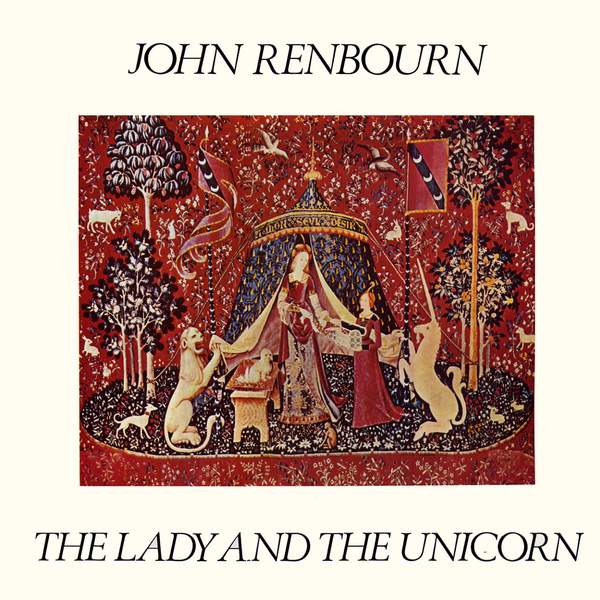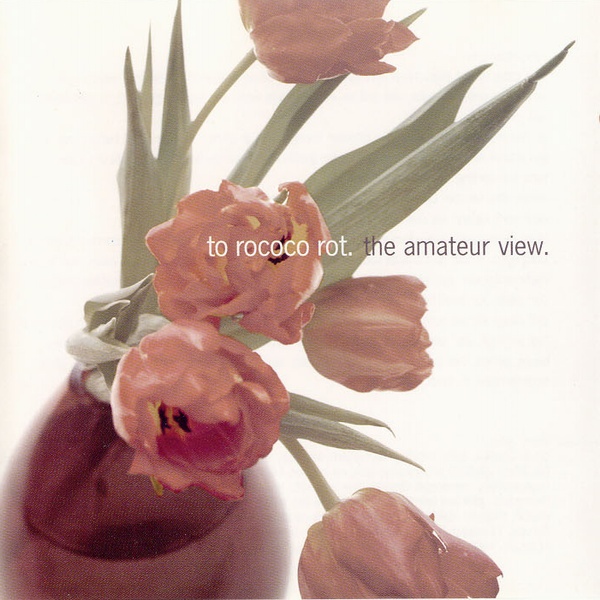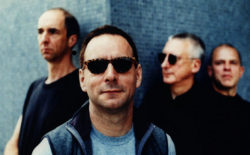Ahead of art-rock legends Wire’s performance at Ray Davies’ Meltdown, which took place at London’s Southbank Centre in June 2010, we sidled up to the band’s Colin Newman to discuss some of his favourite albums. This is what he came up with…
JOHN RENBOURN
THE LADY AND THE UNICORN
(TRANSATLANTIC RECORDS LP, 1970)
‘The Lion And The Unicorn’
Did you follow Pentangle, Renbourn and Jansch closely during the 60s and 70s?
“When I was at school the answer to the question ‘who is your favourite guitarist?’ was supposed to be either Jimi or Eric. I, along with a few others, personally found endless guitarwank highly unappealing so would give an answer of either Bert or John [laughs]. It was a way of showing you were cooler than the other kids…
“Did I see them live? I was at school in provincial Berkshire so didn’t see many bands live unless they passed through our town. Coming back to Bert Jansch’s debut album recently it sounds remarkably fresh for an album recorded in 1963.”
How did folk music fit into your Wire’s worldview in the 70s? Did it not perhaps feel like anathema to you and your peers at the time?
“I don’t think folk music fits at all into Wire’s worldview! Although it must be said Wire have never really had much truck with punk rejectionism, and stylistic fascism has always been alien to the band’s culture. For myself I was always interested in music from the British folk boom. I always think of myself as coming from several, what some may find quite different, musical traditions. My first ‘proper’ instrument was – and remains – the acoustic guitar, but then again I was as much a soul kid in the 60s and 70s as a folkie.”
Did Renbourn’s playing style impact on your own, and if so, how?
Are you kidding?! I’m the original crap guitarist [laughs]. However, I must say I heard enough ham-fisted renditions of ‘Angie’ in my school days to know what not to do with a guitar!
The Lady And The Unicorn was strongly influenced by Renbourn’s interest in early music – is this an interest you share?
The thing about The Lady And The Unicorn is that it’s a strange ragbag of various bits ranging from early music, through folk tunes to a rendition of Bach plated on slightly distorted electric guitar (a bit of a two fingers at the time). I like the plaintiveness of the very early pieces. Very minimalistic. I had just never heard anything like it before; I liked the way the music made me feel quite strange.”
JOHN CALE & TERRY RILEY
CHURCH OF ANTHRAX
(CBS, 1970)
;hl=en_US” />Loading Video…
;hl=en_US” allowscriptaccess=”always” allowfullscreen=”true”>
‘The Hall of Mirrors In The Palace at Versailles’
Both Riley and Cale were famously unhappy with how Church Of Anthrax turned out, and certainly at times it’s a record that’s not quite the sum of its parts…
“I can see why! The Cale song is the only track I always skip and I can imagine that Terry Riley would find Cale’s slightly over-minimalistic contributions a bit annoying. But as much as I love Riley’s work from this period there are moments in this album that outshine even that. ‘The Mirrors in the Great Hall at Versailles’ is one of those pieces of music that can still send shivers up my spine.
“Also it has to be said that however great any particular artist is they can come somewhere they never would have by collaboration. This is why I only work on collaborative projects, it’s not artistic weakness, it’s wanting to make new discoveries…”
Were you expressly interested in Terry Riley and or ‘classical’ minimalism back in the 60s and 70s, or was it something you discovered later?
“On my first day at Arts foundation in Winchester the year tutor played us Piano Phase by Steve Reich. It was something completely outside of my knowledge of music at the time. My parents were not especially interested in music but I had steeped myself in every genre of what you might readily call ‘popular’ music by diligent listening to radio and records and by paying close attention to the NME. Nothing in that could have prepared me for what I heard that day. I’m still a huge fan of Reich’s work from the 70s, especially Music For 18 Musicians. An interest in Terry Riley followed soon after. La Monte Young is one of those composers I’m meaning to catch up on, now I know the influence on the minimalist composers and the connections with Fluxus.”
I detect some influence from John Cale’s solo work on your own solo work – particularly the chamber orchestral sound of [Newman’s 1986 LP] Commercial Suicide. Is that fair to say?
“Nobody’s ever said that before. I actually don’t know Cale’s solo records at all. Obviously I know the Velvets’ stuff and his production of Chelsea Girl by Nico, and the first Modern Lovers album, or the demos that became an album. Strangely, recently a friend who went to a Steve Reich concert came back very excited about the musical connections between my work and his!”
Have you or Wire ever worked with Cale or wished to do so?
“My brother-in-law knows John Cale pretty well, although I’ve never met him myself. I also think it would be hard to collaborate with an artist of his stature.”
TEHO TEARDO
SOUNDTRACK WORK 2004-2008
(EXPANDING RECORDS CD, 2010)
;hl=en_US” />Loading Video…
;hl=en_US” allowscriptaccess=”always” allowfullscreen=”true”>
‘Fisso lo Sguardo’
Do you have much experience of your own in scoring for film?
None at all although a solo album I released in the early 80’s “Provisionally Entitled the Singing Fish” was intend partly as a portfolio to see if anyone was interested in getting me to do something like that. Of course it’s something I’d love to do but had no opportunity to date.
Did you discover Teardo’s music via this album, or through one of the films he scored? What for you makes his music stand out?
I discovered him through the Modern Institute [Teardo and Martina Bertoni] record [Excellent Swimmer, 2006] which was one if the things we distributed through posteverything back in the day. I later met him through my fellow Githead member Robin Rimbaud and we hit it off immediately. He has a harmonic sensibility which I feel is very close to my own. Teho also has show on Italian National Radio and featured the entirety of the Githead album Art Pop on one of his shows. We’ve just kept in touch and he sends me stuff as it becomes available and I return the compliment! Musically he has a way with beauty that very few have.
Any other film composers or music particularly admired by you or anyone else in Wire?
“I don’t think that Wire have any particular view on film composers although both Graham and I love Teho’s work. In fact one of the pieces on this album was included in the warm-up music that preceded all of Wire’s three zillion shows this year! I guess the other name is Ennio Morricone, hard not to love!
“We had several tracks in the French movie Carlos (much to lot of people’s surprise) and are very encouraging in efforts to get our music placed in interesting contexts.”
TO ROCOCO ROT
AMATEUR VIEW
(CITY SLANG LP, 1999)
;hl=en_US” />Loading Video…
;hl=en_US” allowscriptaccess=”always” allowfullscreen=”true”>
‘Telema’
Tell us about your involvement in electronic music over the years.
“My wife Malka and I have run the swim ~ label since the early 90s and during that decade we released a lot of what you might better call dance music by ourselves and others. Our own minimalistic electronic project at that time was called Immersion and we released records by many others, most notably by minimal techno artist G-man (Gez Varley from LFO – we topped the German DJ charts with one of his 12″s ) and drum & bass artists Ronnie & Clyde, who got a huge amount of press on their debut album, although they are somewhat overlooked now. We know our Githead partner Robin Rimbaud through him having been a big swim ~ supporter and him having done remixes for us. Githead is fundamentally a rock band made by people who have spent a decade doing dance and electronic music!
Wire’s 154 is arguably the well-spring from which gave rise to (dread phrase) post-rock artists like To Rococo Rot. How do you feel about the album all these years after its completion?
“For me personally To Roccco Rot come out of the Berlin minimalist tradition, it’s music that developed from minimal techno. In my opinion Tortoise – who I’ve also worked with – are the archetypal post-rock band. Historically they came at a point when London was getting very bored with sequenced beats.
“I feel the same way about 154 as I’ve felt always and that’s coloured more by the fact that it was very problematic to make, not because of its content. In many ways Chairs Missing was the more radical record because it was such a huge step on from Pink Flag, but what do I know? If I had a pound for every person who has told me that 154 is the best album ever then I’d have a very big pile!”
Do you follow much contemporary electronic music? Any favourites outside of To Rococo Rot?
“I love every kind of dance and electronic music, even quite cheesy house music [laughs]. I think it’s fantastic the way that ‘urban’ music has been totally subverted by a bunch of trance hippies who everyone thought were cheesy 15 years ago! Holy Fuck are one of the best things I’ve seen live in the last few years (although I class them as krautrock). We also played a show with Factory Floor last year, who are great.
“To Rococo Rot are a bit old-school by now but I love the mood of that album, also they have an amazing and unique drummer. I also really like the other project Tarwater. One thing that is special about these guys is that the Lippok brothers were from East Berlin originally and you could sense they had a different energy from West Germans.
In virtually all of the albums you’ve chosen to talk about, a streak of minimalism runs through. Is minimalism still an idea/approach that interests and preoccupies you?
“Of course! I’m definitely a minimalist. It’s probably the only categorisation I would agree to. I don’t mean this in any formal sense or as part of any kind of movement; I just accord to the dictum ‘less is more’…”
DEATH CAB FOR CUTIE
SOMETHING ABOUT AIRPLANES
(BARSUK/ELSINOR CD, 1998)
;hl=en_US” />Loading Video…
;hl=en_US” allowscriptaccess=”always” allowfullscreen=”true”>
‘Bend To Squares’
We would never have guessed that you’re a Death Cab for Cutie fan. How come you picked this number?
“I picked it for that reason! [laughs] As I said, I simultaneously come from many different ‘schools’, including pop of course. I always admire someone who has a way with a tune and in addition Ben Gibbard has one of those really ‘pure’-sounding voices. I like this album, especially the opening track ‘Bend to Squares’ because you have a sense of not only a band’s sound being created but also of a genre being created. I also like the way it’s so unashamedly pretentious in both lyrical content and musical approach. It doesn’t end up the way it does because someone thought they could make a bunch of money doing that (the ‘curse’ of pop) but more because it comes naturally. Always the best way.”
This is their debut – are they a band that you’ve continued to follow through their career?
“I tend to like songs more than albums but every album of theirs (I’ve got most of them) has something good.”
How has your attitude to ‘pop’ changed over the years, both as an artist and as a listener?
“Pop is a loaded gun to be honest. I think my attitude changes as attitudes change and as pop itself changes. A some point there was something called ‘perfect pop’ which wasn’t actually that popular. The terminology is very slippery. In fact I didn’t really think of Death Cab being a pop group until you mentioned it because they are more like a kind of indie band (in an American sense) than a pop group. I don’t really have a problem if something is successful; it’s more for me about personal taste.
“Of course we are playing Meltdown at the behest of one of the great architects of ‘English pop’, Ray Davies, and I suppose Death Cab would fit into that kind of definition of pop (and would recognise themselves as doing so) but Katy Perry making Snoop Dog look like a dirty old man in ‘California Girls’ is just as much pop…”
Wire play Ray Davies’ Meltdown festival at the Southbank Centre on June 18. More information and tickets here.



































